Song: “Old Chisholm Trail” Artist: Frank Goodwyn
“Old Chisholm Trail”
“Old Chisholm Trail” is a cowboy trail song by Frank Goodwyn, recorded on April 30, 1939, in Falfurrias, Texas. The song tells the story of a cowboy and his exploits and troubles while driving longhorn cattle on the Chisholm Trail.
This post will focus on the original recording by Frank Goodwyn, but this song has been rerecorded by various famous names in country music throughout the years, including Gene Autry and Woody Guthrie.
Gene Autry's Version: https://www.youtube.com/watch?v=IaRkR0X25Ow Woody Guthries's Version: https://www.youtube.com/watch?v=OZgpJbF6JaQ
The Chisholm Trail
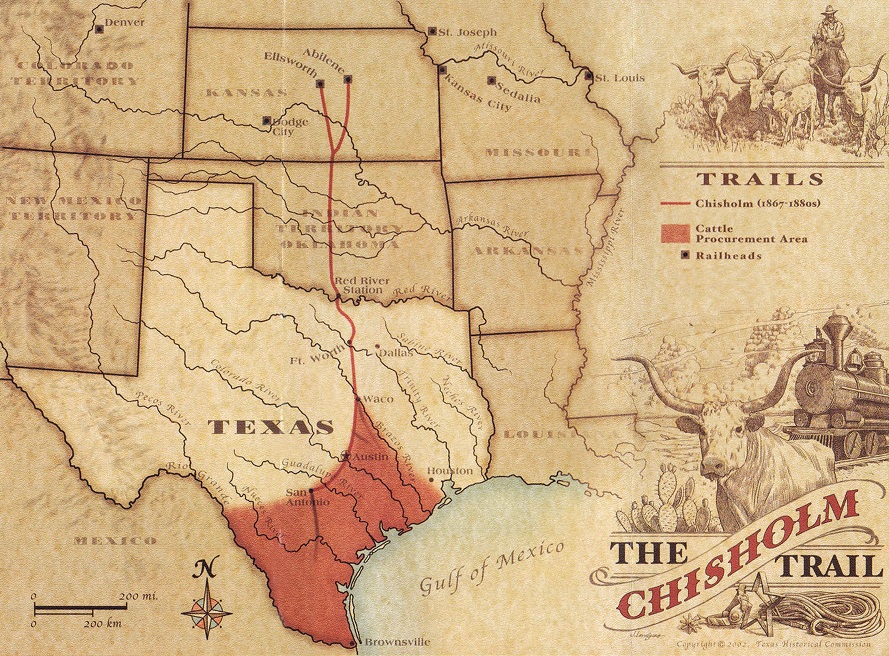
The Chisholm Trail was a route used drive cattle from Texas up into Kansas. The trail was initially established as a freight route through Indian territory by traders Jesse Chisholm (for whom the trail is named) and James R. Mead. Following the Civil War, the freight route was repurposed as a cattle route, bringing business to Texas and food to Kansas. However, this particular trail was only used 1867 to 1884. Later on, the name “Chisholm Trail” would be appropriated for various other cattle trails from Texas into Kansas.
Frank Goodwyn (1911-2001)
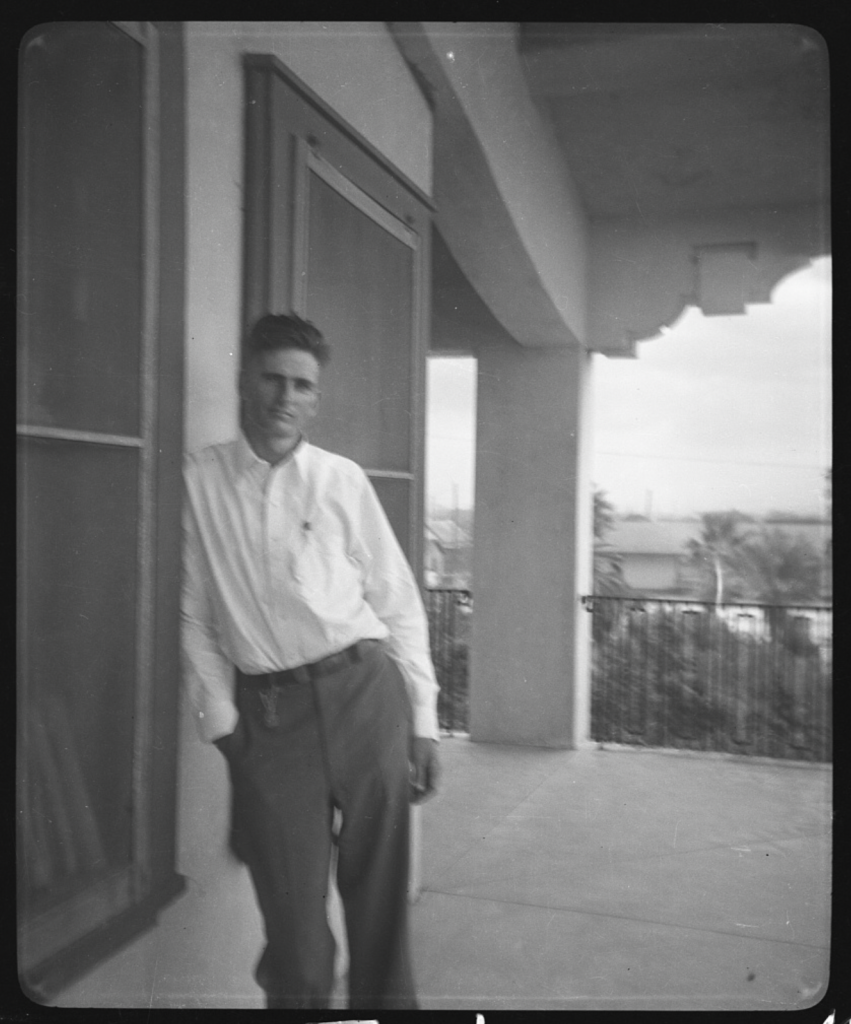
Frank Goodwyn is credited in John Avery Lomax’s Southern Mosaic: The John and Ruby Lomax 1939 Southern States Recording Trip as the artist responsible for “Old Chisholm Trail”. Later in his life, Goodwyn would write novels, histories, and poems about the American West, including his book Life on the King Ranch (1951), which recounted his youth as a cowboy in Texas. There is not much information about Goodwyn’s musical career.
John Avery Lomax (1867-1948)
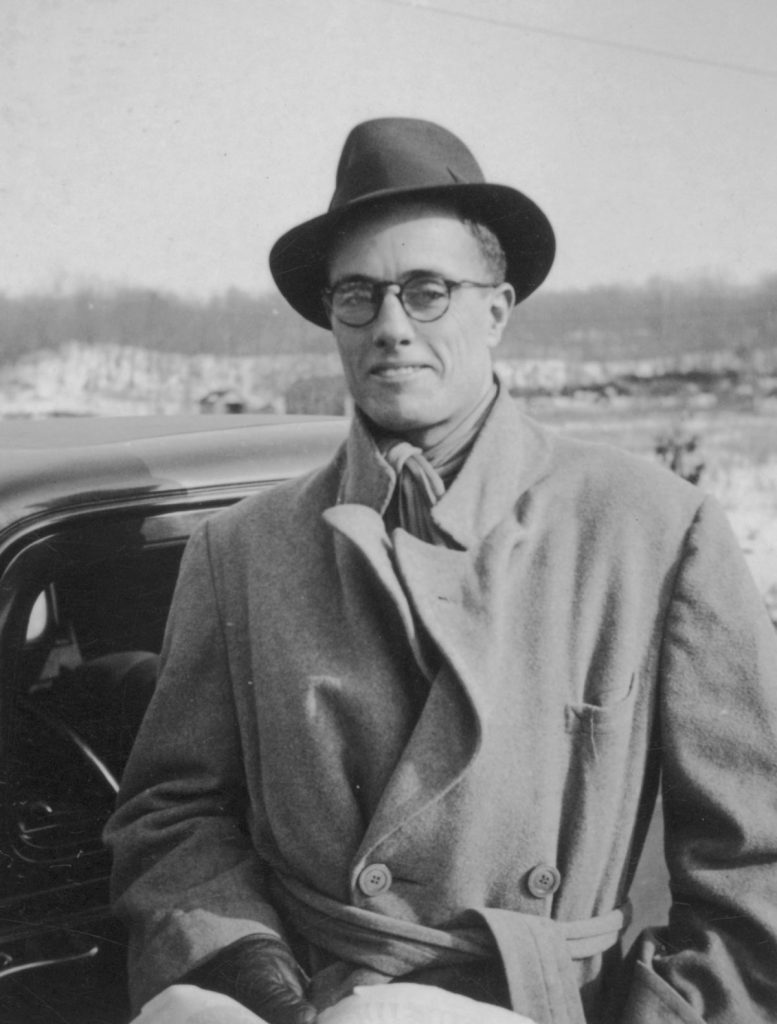
John Avery Lomax is the man responsible for the first recording of “Old Chisholm Trail”. Lomax grew up on the Texas frontier and was fascinated with cowboy songs. As Lomax grew and became a professor at Texas A&M and then the University of Texas, he professionally pursued his interest in cowboy music.
This interest culminated in the three-month, 6,502-mile recording trip through the southern United States. Starting in Port Aransas, Texas, on March 31, 1939, and ending at the Library of Congress on June 14, 1939, Lomax and his wife, Ruby Terrill Lomax, recorded approximately 25 hours of folk music from more than 300 performers. These recordings spanned many genres, including ballads, blues, children’s songs, cowboy songs, fiddle tunes, field hollers, lullabies, play-party songs, religious dramas, spirituals, and work songs. Lomax compiled all of his recordings, as well as copious notes he had taken, into a huge collection titled Southern Mosaic: The John and Ruby Lomax 1939 Southern States Recording Trip.
The songs recorded by Lomax are considered “non-commercial” recordings, as they were recorded to preserve history and culture rather than to be sold.
The Song Itself
“Old Chisholm Trail” is certainly an interesting piece of music history. Not only does the song itself hold lots of insight into the life of cowboys who would have sung this song on the trail, but Lomax’s recording of the song is also extremely interesting.
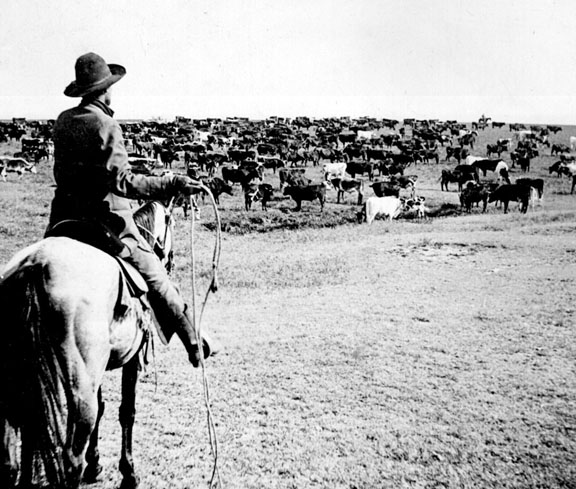
Firstly, the lyrics of the song tell a very light and humorous tale of the life of a cowboy on the Chisholm Trail. The cowboy in the song tells a funny, almost cyclical story of working as a cowboy to make money, then finally getting off the trail and going into town, only to cause trouble that makes him broke again. Thus, his only recourse is to return to the Chisholm Trail as a cowboy once more.
Upon listening through various versions of the song, the lyrics seem to be fluid, with certain verses present or missing depending on the version. A song like this, a song that was sung on the trail and probably passed from person to person without a definite, written set of lyrics, would be bound to change as it got passed around. This song also features a sort of “yodeling” chorus, a common trait of many cowboy trail songs.
Secondly, the recording itself is fascinating. Preserved on YouTube and in the Library of Congress, the recording is very rough and unpolished. The audio quality is poor, which is understandable for the time. Keep in mind that Lomax was traveling the South with his recording equipment in the trunk of his car.
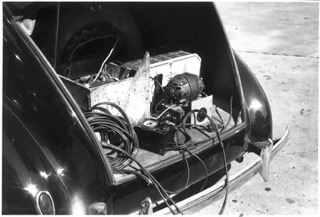
There are also multiple instances in the recording where Goodwyn messes up the lyrics or even struggles to remember them. Due to the antique nature of Lomax’s equipment, he probably only allowed Goodwyn one take, which is evident in the recording.
Lyrics
[Verse 1] Come along boys and listen to my tale, I'll tell you of my troubles on the old Chisholm trail. [Chorus] Come a ki yi yippee yi yay yi yay Come a ki yi yippee yi yay [Verse 2] Oh, a ten-dollar hoss and a forty-dollar saddle, And I'm goin' to punchin' Texas cattle. [Chorus] [Verse 3] It's cloudy in the west, a-lookin' like rain, And my durned old slicker's in the wagon again. [Chorus] [Verse 4] Stray in the herd and the boss said, "Kill it," Hit him in the rump with the handle of a skillet [Chorus] [Verse 5] Foot in the stirrup and a hand on the horn The best danged cowboy ever was born [Chorus] [Verse 6] Well I went to the boss to get my money And I went to town to see my honey [Chorus] [Verse 7] But my honey wouldn’t see me, and she threw me down So I got drunk and shot up the town [Chorus] [Verse 8] They took me to court, and they fined me ten And I paid them twenty and got drunk again [Chorus] [Verse 9] They took me to court and put me in jail And I got my boss to go my bail [Chorus] [Verse 10] I’m back at work and it ain’t no joke I’m a darn good cowboy when I’m broke
References
https://www.loc.gov/collections/john-and-ruby-lomax/about-this-collection/ https://picryl.com/media/frank-goodwyn-kingsville-texas https://www.loc.gov/item/ihas.200196225The Old Chisholm Trailhttps://www.tshaonline.org/handbook/entries/chisholm-trail https://www.washingtonpost.com/archive/local/2001/02/25/prof-frank-goodwyn/dd53e967-7303-4e13-bc5e-68036c2355f9/
